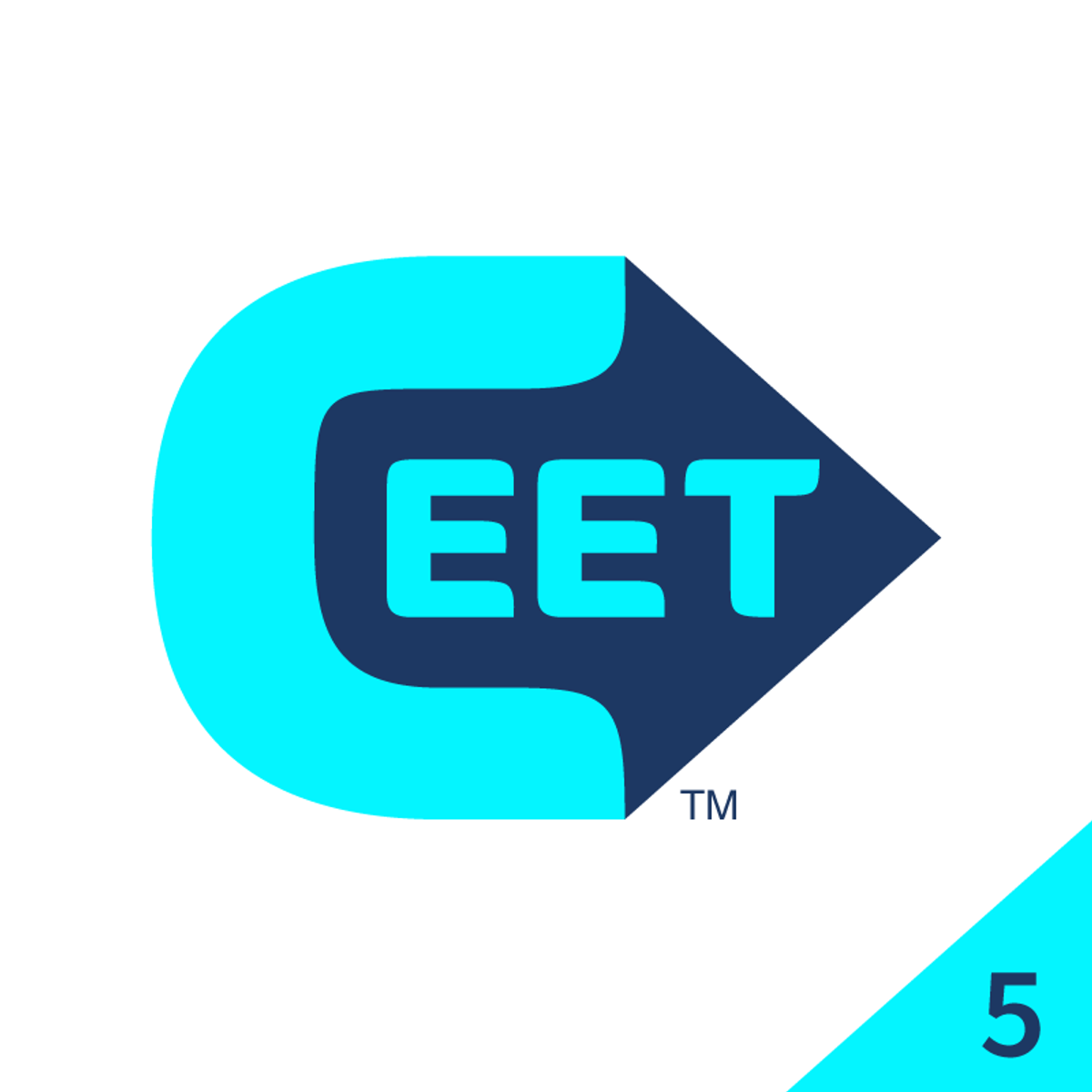Back to Courses









Leadership And Management Courses - Page 19
Showing results 181-190 of 600

Entrepreneurship Strategy: From Ideation to Exit
This course covers in the chronological order each defining step of an entrepreneurial project. It begins with very personal considerations related to getting to better know yourself better so as to decide if you are ready for the multiple challenges of entrepreneurship. It then deals with creativity in order to provide the right set of tools to find an idea with the right potential to disrupt an existing business. We then discuss how to gather a founding team, how to raise money to initiate the project, and how to deal with day to day cash management. Later in the course, we discuss the art of selling, focusing on business to business sales, and how to measure the product launch phase using cohort analysis. Later on, we discuss the challenges of HR in an entrepreneurial environment, and of recruiting at a point where nobody knows your company. We then describe very practical techniques to initiate the international development of a small company. Last, we cover the exit strategy topic.

Agile Leadership Capstone
This capstone project course takes you through a guided journey of putting together a comprehensive agile transformation packet. To create this packet, you will be creatively applying the concepts and tools we have covered in the first four courses of this Specialization.
In the capstone course scenario, you were hired as a Senior Scrum Master at Nike. You will understand what a Fortune 100 company would be looking for in a candidate by analyzing a real Nike job posting. If you aspire to work in a similar role, this exercise should give you an idea of where you stand today and what skills you might want to hone on in the future.
You then will be completing a probationary assignment as a part of the requirement of this new role. Your plan should help you answer the question of what steps you will take in your first 30 days at Nike to develop yourself, your team, and the enterprise.
The packet you will be developing consists of the following four elements:
Transformation roadmap
One-month-long Sprint Plan for personal development
One-month-long Sprint Plan for developing a brand new Agile team
Change management plan to strengthen Nike’s internal culture, support innovation, and fend off intense competition (alternatively, you may choose to create a plan for the company you are working for)
The capstone project will provide you with a hands-on experience of strategically planning for change and applying Scrum tools. Don’t forget to have fun with it!

Introduction to Service Innovation and Management
This course is best suited for individuals currently in the healthcare sector, as a provider, payer, or administrator. Individuals pursuing a career change to the healthcare sector may also be interested in this course.
In this course, you will learn about the importance of successful execution and management of service innovation. The course focuses on the internal management of business processes necessary to deliver improved services to customers and patients, increased profitability, and build long-term customer loyalty and engagement. You will experience elements that are critical for the effective execution, implementation, and evaluation of the various strategic aspects of achieving organizational goals, with an emphasis on the initiatives and key organizational change elements. Through guided project work, you will have an opportunity to apply these concepts to services and internal business processes at your own organizations. Additionally, the course has been designed to help you become familiar with a framework of service and process redesign.

CAPSTONE: Your Leadership Challenge
Welcome to the capstone project course in the Coursera Inspirational Leadership Specialization!
In the next 6 weeks you'll apply the skills you learned in the Specialization to tackle a real world leadership challenge.
To better meet your own goals of taking this Specialization, we will provide one capstone project:
-Personal leadership challenge;
You'll select one project to implement and will receive assessments from your Capstone peers. No matter which option you choose, the capstone project will examine your skills, including self-awareness, developing quality relationships and trust, resilience, and how making decisions entails a strong sense of responsibility.
For the personal challenge, you will work on your own question addressing your capacity to grow as a leader. A challenge can be a target objective (starting a company, running a project, designing a product, winning a competition, running a marathon…) you have for yourself which puts into question what you want to achieve and how. The Capstone will help you measure the challenge, establish a process and build the steps to meet your goals.
Whatever personal challenge you choose, specific questions will attest to your capacity to analyze and criticize the the problem which is faced by by yourself.
The process that will drive the Business plan will follow step by step the relational circuit model developed in MOOC2 “Giving Sense to your Leadership Experience” and MOOC3 “Leading Organizations” with its two phases of Exploration and Projection.
In the EXPLORATION, you will engage in a first step of holistic perception of the problem using your sensible skills to give a sense of perspective and give voice to you subjective apprehension of the situation as a whole. The second stage of exploration will involve your analytical skills to understand each and every component (elements of data relevant to the challenge) that plays a role in defining the situation. And the third stage of exploration will apply your relational skills where you will make sense and connect your subjective perception with your analysis. You will share the exploration results with peers to receive feedback before your can move on.
The second phase, the PROJECTION part of your business plan leading to recommendations for the personal challenge at stake. In the projection phase you will first look at what the situation might be when you decenter the problem in time and space. Using benchmark and competitive analysis, you will work on different scenarios for the projected outcomes. Finally, with a view to build sense out of the challenge you will come up with recommendations arguing for a preferred scenario.

The Factors that Influence the Effectiveness of Boards and the Governance Process
The third course in this Specialization introduces you to the factors that influence how effective boards of directors will be in carrying out their roles and responsibilities and hence the impact they have in shaping the success of the organization they govern. While this course has been developed with North American culture in mind, we do appreciate that, in other parts of the world, the nature of the factors that influence the effectiveness of nonprofit boards of directors may vary. Nevertheless,it is our hope that much of the course content will still be of value to those in other parts of the world.
To learn more about this course, please watch the overview video by copying and pasting the following link into your web browser: https://goo.gl/aAMIfl.
Keywords: Nonprofit; Nonprofit Sector; Voluntary Sector; Nonprofit Organizations, Non-Governmental Organizations, Volunteer Organizations, Leadership, Management, Governance, Board, Board of Directors, Performance, Effectiveness
Course 3 Overview:
Week 1: This week's questions: What factors influence the effectiveness of board meetings? What are the formal procedures and structures within the board that impact its performance? What can a board do to intentionally improve the way it structures itself and runs its decision making meetings?
Week 2: This week's questions: What do we mean by board composition and development and why is it important? Why is it difficult to change the composition of the board? How do you design the ideal mix of board members? How do you locate, recruit and develop board members?
Week 3: This week's questions: What do we mean by the "culture" of the board and why is it important? How do boards develop and pass along culture? Can board cultures be intentionally changed? What is the role of leadership in shaping board culture? What do effective nonprofit leaders involved in governance do? How can leadership be managed for higher performance?
Week 4: At this stage, you are asked to review the course content, submit a written assignment (known lightheartedly as a BEAR (Board Effectiveness Readiness Assessment), and take two multiple choice Readiness Assurance Tests (known similarly as RATs). One RAT will assess knowledge and reading comprehension and the other will test application of knowledge within a practical case.
Week 5: We will encourage you to discuss the RATs in the discussion forums and take them again should you wish to change any of your answers based on the information exchanged.

Women in Leadership: Inspiring Positive Change
This course aims to inspire and empower women and men across the world to engage in purposeful career development and take on leadership for important causes---to lead change with more conviction and confidence---and improve our workplaces and communities for all. By offering more complex understandings of issues related to professional women and work, the course will help you increase self-knowledge about your own values and vision, as well as enhance your capabilities as a leader, manager, and team contributor. We will examine the opportunities, challenges, trade-offs, and organizational dynamics experienced by women in work organizations, as well as reflect on and practice effective individual behaviors.
The course aims at answering questions such as: What are the valued attributes and behaviors of women in the workplace? How does the gendered nature of organizations impact women? What derails our career advancement and what propels us upward? What are your leadership goals and aspirations? How can you best integrate your multiple family and work life commitments? How do you define career success? What can organizations do to provide women with opportunities to excel? What opportunities could our global economy harness by advancing women to leadership? How can the full talents of the workforce be tapped into and developed?
The course is about leadership and inspiring change, but at its core it is meant to inspire and empower women and men across the world to engage in purposeful career development and take on leadership for important causes, to lead change with more conviction and confidence, and improve our workplaces and communities for all. Your involvement in the course activities is essential to help you learn these concepts and develop the necessary skills to implement them. If you watch the videos and read the required articles you will be introduced to some intriguing ideas. If you do the personal reflective exercises and complete the final project you will convert those ideas into relevant experiences to enhance your life and work. Going beyond your personal relevance, your potential learning will expand to understanding and working with others more effectively through either the Discussion Forums in the course or through face-to-face discussions (some of you are taking the course in groups). Each week, we will post reminders, changes, and other relevant announcements.

Leading Positive Change through Appreciative Inquiry
Appreciative Inquiry is a collaborative and constructive inquiry process that searches for everything that gives life to organizations, communities, and larger human systems when they are most alive, effective, creative and healthy in their interconnected ecology of relationships. To appreciate, quite simply, means to value and to recognize that which has value—it is a way of knowing and valuing the best in life. In the language of Positive Organizational Scholarship it means a research focus—a positive bias—seeking fresh understanding of dynamics described by words like excellence, thriving, abundance, resilience, or exceptional and life-giving.
In this context the word appreciate means to value those things of value—it is a mode of knowing often connected to the idea of esthetic appreciation in the arts. To appreciate also means to be grateful or thankful for—it is a way of being and maintaining a positive stance along the path of life's journey. And not incidentally, to appreciate is to increase in value too. Combining the three—appreciation as a way of knowing, as a way of being and as an increase in value– suggests that Appreciative Inquiry is simultaneously a life-centric form of study and a constructive mode of practice. As a form of study, Appreciative Inquiry focuses on searching systematically for those capacities and processes that give life and strength and possibility to a living system; and as a constructive mode of practice, it aims at designing and crafting human organizations through a process in which valuing and creating are viewed as one, and where inquiry and change are powerfully related and understood as a seamless and integral whole
Leading Positive Change through Appreciative Inquiry is a course dedicated to advancing our understanding and skill in leading strength-based change and on how to create, foster and manage organizations in which people thrive and perform at their best.

Marketing Design with Easil
Easil is a free, user-friendly platform which allows you to create informative and eye catching designs to market your products, events, or services. Known for their “drag-and-drop” features, Easil gives you the ability to truly customize each of your ads to meet your marketing needs. Easil has a library of free templates available to use, which makes creating ads and marketing campaigns a breeze. With social media’s heavy influence and presence in today’s society, it is important to create a strong social media presence when advertising your company. This will help to ensure target market engagement and keep your customers up to date on your current sales, projects, and events.
In this project, we will use Easil to create social media posts to help boost online presence and increase customer interaction. In addition, we will design a customer loyalty punch card which our customers can use to keep track of their purchases and rewards. This project will teach you about some of the many features of Easil while also giving you the freedom to explore your own creativity.
Note: This course works best for learners who are based in the North America region. We’re currently working on providing the same experience in other regions.
Create and Lead an Ethical Data-Driven Organization
Creating and leading an ethical data-driven organization, when done successfully, is a cultural transformation for an organization. Navigating a cultural shift requires leadership buy in, resourcing, training, and support through creation of boards, policies, and governance. Beyond leadership and organization, it is imperative to engage employees through forums and incentive programs for continual involvement. A strong understanding of ethical organizational policies provides the foundation for consistent monitoring to maintain an ethical culture.
In this fifth course of the CertNexus Certified Ethical Emerging Technologist (CEET) professional certificate, learners will develop strategies to lead an applied ethics initiative, champion its crucial importance, and promote an ethical organizational culture. Learners will learn how to develop and implement ethical organizational policies and a code of ethics. They will also be prepared to evaluate the effectiveness of policies with internal and external stakeholders.
This course is the fifth of five courses within the Certified Ethical Emerging Technologist (CEET) professional certificate. The preceding courses are titled Promote the Ethical Use of Data-Driven Technologies, Turn Ethical Frameworks into Actionable Steps, Detect and Mitigate Ethical Risks, and Communicate Effectively about Ethical Challenges in Data-Driven Technologies.

How to Use the TOWS Matrix to Analyze and Set Strategy
By the end of this guided project, you will be able to use the TOWS matrix to analyze and determine your optimum strategy. The TOWS Matrix is an acronym for Threats, Opportunities, Weaknesses, and Strengths. The elements of the SWOT Analysis provide the basics for the TOWS Matrix. But TOWS rearranges the information, and provides a framework to identify possible strategic options to pursue. TOWS analysis matches internal to external factors to help identify relevant strategic options. By combining the external environment’s opportunities and threats with the internal organization’s strengths and weaknesses, you can come up with four basic strategies. And the strategies are centered on exploiting opportunities, minimizing threats, overcoming weaknesses and capitalizing on strengths
For us to practically demonstrate how the model works, we will use a spreadsheet to analyze an energy services company. Examples from the case study would empower you to use the model to analyze your company or any other company of your choice. The TOWS Matrix is a decision-making process for developing strategic alternatives. Both startups and large enterprises can use TOWS analysis approach as a primary strategic planning tool. At the end of the project, you will be able to use the matrix to brainstorm possible strategic options, determine your strategic roadmap, and identify your competitive advantage
Popular Internships and Jobs by Categories
Find Jobs & Internships
Browse
© 2024 BoostGrad | All rights reserved